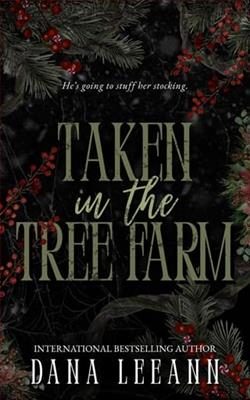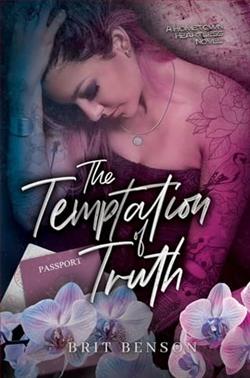Page 30 of Chasing Shadows
They rejoined the others in the drawing room, where Bingley’s attention was wholly fixed upon Jane. Mrs. Bennet beamed with satisfaction, and even Kitty and Lydia whispered together in girlish delight. No one spoke of the murderedtradesman, though Elizabeth half expected it, for her mother had remarked more than once, only two days before, that every misfortune in Meryton must, in some fashion, be connected to Mr. Darcy. To Elizabeth’s surprise, Mrs. Bennet merely offered a hasty but proper nod in his direction when they re-entered the room, her thoughts so entirely absorbed by Jane and Bingley’s happy conversation that she scarcely appeared troubled by Darcy’s presence at all. Elizabeth could not help but be grateful for it.
After an hour of polite conversation, punctuated by many tender glances exchanged between Jane and Bingley, the gentlemen at last prepared to depart. Darcy offered Elizabeth a bow, and when his eyes met hers, a gentleness touched his expression. She watched them go, her mind still troubled, yet steadier than before. Ramsgate’s shadow lingered, but she knew she didn’t bear it alone.
***
Colonel Fitzwilliam did not know precisely what he was meant to uncover in Ramsgate, only that duty demanded he begin there. Long habit had taught him the value of discretion, and so, when he quitted Netherfield the morning after the murdered tradesman’s body was discovered, he departed under the pretence of being summoned to London and gave the same instruction to his post-driver. Only once they were well upon the road did he order the chaise turned southward toward Ramsgate, trusting that fewer would be aware of his true destination.
The diversion, together with the wearying pace of winter travel and the hindrance of snow upon the roads, slowed him despite every effort. Horses were changed as swiftly as could be contrived, and he allowed himself but little sleep, for the urgency of his errand pressed heavily upon him. He couldnot know whether there was time enough for such inquiries, nor whether the killer might strike again before he returned. Yet to do nothing was the greater risk, and so he pressed on, reaching Ramsgate at last just as the sun began to set on the third day.
Finding Mrs. Younge was his only concern. Darcy had given him the address of the house where she had last been seen. It was the same house where Wickham had once attempted to elope with Georgiana. Darcy was uncertain whether she still resided there, for after replying to the last enquiry concerning her, he had ceased to keep watch, trusting that others would soon perceive her duplicity and refuse her employment. Ramsgate, however, remained the last place she was known to stay.
The house Darcy had named stood upon a rise above the harbour, its pale stone front set with high windows that looked out upon the sea. Even by lamplight, its air of respectability and the higher rent it must command, confirmed Colonel Fitzwilliam’s suspicion that Mrs. Younge could not long have remained there once Darcy ceased to pay the bills. Still, it was the last address known, and he had learned often enough in the militia to begin where the trail last ended.
He knocked and was soon shown to the landlord by a servant. The man was stout, with ruddy cheeks and a careful, calculating eye, the sort who weighed every caller by his purse as much as by his words.
“Good day to you, sir,” Fitzwilliam began, bowing with the polite ease of his rank. “I am in search of a lady who once lodged here about two summers ago, Mrs. Younge. I wonder if you recall her?”
The landlord rubbed his chin, his eyes turning toward the west as though the fading light might assist his recollection. “Aye, I remember her that summer. She came with a young missand a very handsome establishment. But they did not stay long. You knew them, then?”
Fitzwilliam allowed a pause before replying with the quiet gravity of one imparting business. “Indeed. Mrs. Younge was governess to my late uncle’s ward. The family have since gone abroad, Italy first I believe, and now to the Americas, and I regret to say my uncle has lately passed. There is a small remembrance left for Mrs. Younge in his will, owing to her service. We have been much at a loss how to discover her, and I was told Ramsgate was the last place she was known to reside.”
The landlord frowned, then nodded. “That is true enough. When I did not see the young miss with her, I asked, and she said they let her go. I always wondered why, but she did not venture to tell me. She stayed on here for a short while after, but this house was not for her purse. I believe the rent was overdue. She removed to a smaller lodging in town, cheaper by more than half.”
“She had no wish to follow my uncle and his child overseas, as I understood it,” Fitzwilliam added gravely. He allowed himself no smile, but inwardly he thanked Providence that the man accepted his explanation. In his experience, the plainest of lies opened more doors than the truth, for whenever he announced his militia connections, people grew guarded at once. “Do you happen to know where she removed to?”
The landlord pursed his lips, then shrugged. “I keep my books careful. I shall have a look. But if memory serves, she went to Mrs. Pritchard’s in the High Street. The house takes only single ladies and widows of modest means. However,”—he lowered his voice—“she did not remain long. It was the talk of the town, sir, though some called it mere rumour. She ended her life there, some four months after leaving me.”
Fitzwilliam drew back slightly, his features composed, though his mind raced. “I am sorry to hear of it. I had nonotion. Yet, if I might trouble you for Mrs. Pritchard’s direction, it may be that some family member could be reached through her, someone to whom I might deliver what remains of the remembrance.”
The landlord gave a grunt of sympathy and rubbed his chin once more. “No need of my books for that, sir. I remember well enough—Mrs. Pritchard keeps a house on the High Street, just past the market square. I daresay she will remember your lady. Such things are not soon forgotten.”
Fitzwilliam inclined his head. “You have been of real service, sir. I thank you.”
The landlord gave a dry smile. “We see many pass through Ramsgate, but some leave deeper marks than others. May your business here be soon concluded.”
With another bow, Fitzwilliam took his leave. The landlord’s words rang in his ears as he stepped into the bitter night air. Mrs. Younge dead? The very object of his journey was gone. She had been the one figure who might have explained it all. The only link besides Wickham to Ramsgate who could plausibly be tied to these events. How could a dead woman contrive murders from the grave? The thought struck him with unexpected force.
The salt wind stung his face, yet it did nothing to quiet the tumult within. If she were truly gone, then he and Darcy were wrong about her being the killer. Also, how did Ramsgate stand in the pattern? Was it coincidence only? And why did she kill herself? Guilt, despair, or something more? He could not dismiss the suspicion that even in her death, some trace of the truth might linger, something known to those who had seen her last, some fragment of record, or a careless word that betrayed more than was meant.
Drawing his coat close, he turned away from the house with renewed purpose. He would need to ask for directions toHigh street, and with the sun already set and the streets thinning of people, the task might prove troublesome. Mrs. Pritchard’s house might yield nothing, or it might yet supply the thread that would bind these mysteries together. In either case, he could not abandon the chase now.
Chapter Seventeen
Mrs. Pritchard received him in a modest parlour at the front of the house, its windows looking onto the narrow street below. The lodging itself was a tall, narrow building of grey stone, its façade plain but respectable. It stood at the head of a row of smaller houses, each let to widows or single ladies of slender means. A boy of perhaps seven had been playing with a wooden hoop in the street when Fitzwilliam asked for direction; the child pointed him toward the house, just as the last glimmer of daylight faded into the sea.
After repeating the same tale he had given the first landlord, Fitzwilliam waited while the woman, a spare figure with shrewd eyes and a pointed chin, regarded him steadily, as though weighing every syllable for truth.
“The landlord of her former lodging told me she may have taken her own life,” he said gravely. “Yet he directed me here, saying this was the last place she resided. I had hoped you might speak of her final days. Perhaps there is some family yet to be traced—someone to whom I might deliver what remembrance is left to her.”
Mrs. Pritchard gave a small sniff. “I thought such things were the work of solicitors.”
“I was named executor of my uncle’s estate,” Fitzwilliam returned smoothly. “It seemed best to handle the matter myself.”
The woman’s expression tightened, and for a moment she seemed disinclined to speak. At last, she gave a sigh. “Well, sir, I must confess your uncle must have known a very differentversion of Mrs. Younge. She was a troubling tenant, always with one scheme or another. She sought employment more than once, but no one would take her. Still, she contrived to keep her room, though she owed me two months’ rent.” Her voice lowered, heavy with distaste. “More than once, I suspected she would quit Ramsgate altogether, yet her creditors kept her fast. Some four months after she first lodged here, I observed that she had not been seen for three days. None of the neighbours had heard from her either. I supposed she had at last slipped away to escape her creditors. I was therefore obliged to open her door. There she lay in her bed, poisoned by her own hand. By then, the body was already swelling, and the stench so dreadful that the parish officers were summoned without delay. The coroner held his inquest, and the verdict was suicide. She was buried at the crossroads, as is the custom for such unfortunate souls.”
Fitzwilliam shook his head slowly. “A grave affair indeed. What a pity.”
A silence fell, broken only by the creak of the fire in the grate. Fitzwilliam shifted in his chair, his fingers drumming once against his knee before he stilled them. Was this how the trail ended, in a cold room with nothing but a sordid tale of debts and despair? At last, he cleared his throat. “Did anyone ever come seeking her here? Any family, perhaps?”















